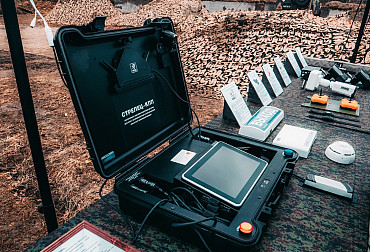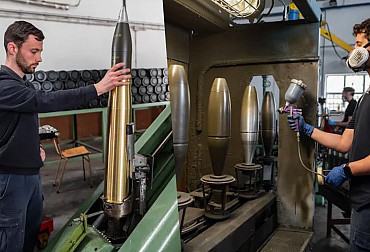North East Flank business representatives’ messages to EU leaders on defence, security and preparedness
As we surpass 1,000 days since Russia's brutal war of aggression against Ukraine began, the global rules-based order remains under unprecedented assault. Europe faces escalating man-made threats, including cyberattacks, espionage, and state-sponsored sabotage. At the same time, natural disasters like the devastating floods in Valencia and the accelerating impacts of climate change are testing ourpreparedness and underscoring the need for stronger societal resilience. Together, these challenges emphasize the urgency of enhancing Europe’s robustness, preparedness, and capacity to respond effectively.

A holistic approach requires active engagement with the private sector, applying both a broader market perspective and sector-specific measures to develop effective and sustainable solutions. Private companies own and manage many of the critical assets and services, making it in their core interest to ensure business continuity and preparedness for disruptions. By maintaining critical services, bolstering emergency response capabilities, and driving innovation in defence and security technologies, businesses play a vital role in ensuring societal stability.
The report by former Finnish President Sauli Niinistö on civil and military preparedness1 offers a valuable starting point for discussing how we can make our societies more prepared and resilient in the face of these challenges. The report makes it clear that businesses are crucial in ensuring the continuity of vital societal and governmental functions. Complementing this, the Polish EU Presidency has prioritized security and defence, focusing on critical areas such as developing the defence industry, protecting infrastructure, enhancing cybersecurity, and strengthening partnerships with allies. Building on the North East Flank Joint statement2 published in June 2024, the following highlights priority areas where the private sector can play a significant role. These areas are not new but represent opportunities for collaboration with the public sector to develop practical solutions that enhance societal preparedness and resilience capabilities:
- Formalizing Public-Private Partnerships: Successful collaboration depends on the public sector's willingness to establish formal partnerships with private entities. Public-Private formal agreements, such as standby contracts, would allow businesses to swiftly provide critical goods and services during crises, ensuring rapid deployment of resources when needed most. Businesses bring expertise, tools, and resources essential for managing both natural disasters and man-made threats.
- Securing Supply Chains and Critical Infrastructure Resilience: Businesses are indispensable in ensuring the resilience of supply chains and critical infrastructure by identifying vulnerabilities, assessing risks, and implementing technologies to mitigate disruptions. Their expertise enhances Europe's ability to react to and recover from crises, ensuring the seamless operation of businesses and daily life for citizens.
- Increasing Cybersecurity: Businesses play a pivotal role in expanding the cybersecurity talent pool and countering evolving threats. Collaboration with public authorities can also address misinformation and disinformation that undermine trust and democracy.
- Strengthening Defence Capabilities: The business community plays a pivotal role in the European defence ecosystem. Through research and innovation, the private sector drives advancements in defence and dual-use technologies, contributing to a robust security framework for Europe.
- Access to Information and Streamlined Processes: Public authorities must provide timely information, analysis and clear guidance to businesses on emerging threats and risks to mitigate potential impact on the operational security of businesses. The private sector's critical companies are on the front line of hybrid threats and need the same information as security authorities to prepare effectively. Streamlined processes for security clearances will further enable effective collaboration during crises.
To support these efforts, certain preconditions must be established: completing the Single Market as our security is based on our economic strength, simplifying regulatory frameworks to foster a favourable business environment, and improving EU and EEA member state cooperation with strategic partners, particularly NATO. Effective coordination should be rooted in voluntary cooperation and mutual trust, rather than extensive regulation.
Our business organisations are both willing and capable to actively and concretely be a partner to the European Commission in developing a comprehensive approach to security, resilience, and preparedness. We can also ensure the stability of essential services and support Ukraine’s fight for freedom—recognizing that their battle is pivotal to the security of Europe as a whole.
Daniel Urban, Director-General – Confederation of Industry of the Czech Republic
Lars Sandahl, Director-General – Confederation of Danish Industry
Hando Sutter, Managing Director – Estonian Employers’ Confederation
Jyri Häkämies, Director-General – Confederation of Finnish Industries
Vidmantas Janulevičius, President – Lithuanian Confederation of Industrialists
Ole Erik Almlid, Director-General – Confederation of Norwegian Enterprise
Maciej Witucki, President – Polish Confederation Lewiatan
Jan-Olof Jacke, Director-General – Confederation of Swedish Enterprise









